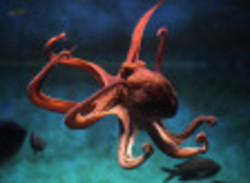"We'll lose more species of plants and animals between 2000 and 2065 (65 years) than we've lost in the last 65 million years. If we don't find answers to these problems [insert: extinction, climate change, pollution], we're gonna be victims of this extinction event that we're at fault for." - Captain Paul Watson
I have done some challenging things in my life; one of them, getting a PhD and doing climate change and food-security research in Ethiopia with the rest of my family half-way across the globe.
Another challenge was being pregnant for 9 months, 9 months of fairly severe nausea and vomiting.
However, the emotional investment and toll of getting a PhD and/or being pregnant are time-limited commitments that in 20/20 hindsight, pale in comparison to advocating for the environment and for wildlife conservation, a lifetime commitment. A commitment I make to myself and to my son; whose world I want to be filled with the same unique and rich bounty of wildlife that mine is/was filled with.
Unfortunately, however, it is proving difficult to remain positive, and to have hope for the future when much of the daily news, tweets, or Facebook feeds are horrific and terrifyingly bleak.
"Every 15 minutes, another African elephant is murdered for its ivory; elephants may be extinct within the next 10 years at current rates."
And on, and on, and on.
It feels hopeless, it feels desperate, it feels difficult to breathe, to swallow, to think.
I want to scream at the top of my lungs, "How can we let these amazing animals just die!" "How can we not do more to save them?" "How can government officials ignore the deaths, allowing terrorism-groups to be fueled by these kills?" "What will Earth look like when my son is my age?"
I find it ironic that my most-read blog post is the one where I pour my heart out about how emotionally difficult it is to be an eco-advocate; not the ones where I provide scientific data, information, or recipes.
So, here are my questions: What is it that makes a difference to people? Makes them want to act?
For me, it was seeing images of the cruelty we (humans) bestow on other animals; cruelty in a way I didn't think could be imaginable - for fun! Cruelty to animals who evolved millions of years before we did, who found a way to live in harmony with others.
For me, it was seeing images of the barbaric nature in which we remove fish and sharks from our oceans, take what we want from them (fins), and throw them back to suffocate in a slow, tortuous, painful death.
For me, it was seeing films of elephants, mourning the loss of a family member, looking far more human than we have in recent years.
For me, it was reading books about animal societies, so much like our own, where children stay by their parent's side for life, working together, trusting together, and loving together.
In many ways, animals are far more "human" than we are, and show far more empathy towards each other, or towards us; more than we show towards them.
But, not all of us are that way. Once I learned what I now know, I decided to "be the change I wish to see" - Ghandi.
I decided to educate others like it's nobody's business. I decided to take on this task. Because, if I don't, if I don't stand up for what I believe is right, and I don't fight for those who have no spoken-language (animals), then, I simply perpetuate the damage.
By not trying to stop it, I indirectly perpetuate it.
Perhaps Dr. Neil Degrasse Tyson, the cerebral astrophysicist got it right: "Humans aren't as good as we should be in our capacity to empathize with feelings and thoughts of others, be they humans or other animals on Earth. So maybe part of our formal education should be training in empathy. Imagine how different the world would be if, in fact, that were 'reading, writing, arithmetic, empathy."
I can imagine empathy still being a part of this world, I felt it, in Ethiopia. One of the poorest countries on the planet, with some of the hungriest, most impoverished people. I felt it, when I would meet and talk with individuals on the streets, beggars, shoe-shiners, construction workers. Though they had NOTHING, what they had, they offered to share with me.
What I took away from that experience was, humans have the capacity to empathize, humans have the capacity to care, humans have the capacity to share; to share the resources, the world, the oceans. We have the capacity to do a great many things. We simply need to act on them.
But, here's the other side; and perhaps Dr. Carl Safina got it right when he asked this question in his recent TEDtalk: "Do Humans have enough: [Capacity - my add in] Consciousness, intelligence, rationality, creativity, empathy, love to let Life on Earth Survive?"
I don't know if we know the answer to this question yet.
All I know is that I will continue to tweet, to Facebook, to blog, and to educate.
When I am met with silence, scorn, sarcasm, ridicule, ignorance, or stubbornness, I will do my best to move past it and keep fighting.
After all, "There's still a lot left worth fighting for." - Jane Goodall

